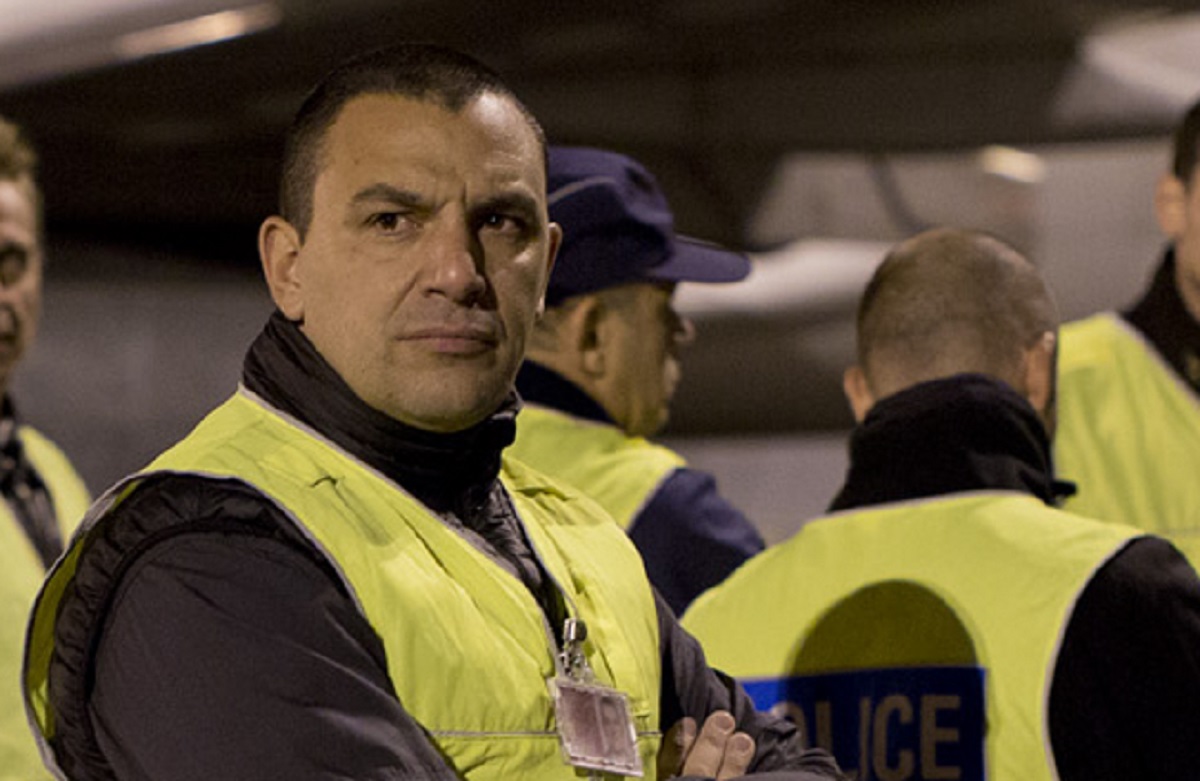Interview with Olivier Mismetti, in charge of the Close Protection Detachment of the International Security Police | April 2016
April 2016
Discover, through this interview, the daily work and responsibilities of the man who heads the Close Protection Detachment (DPR), protecting John Kerry, Sergueï Lavrov, Laurent Fabius, Ban Ki-moon and other figures during their stay in Geneva.
Olivier Mismetti manages the Close Protection Detachment (DPR) of the International Security Police (PSI) since October 2011. Consisting of 19 agents, this service is responsible for protecting official figures - Swiss and international - passing through Geneva. He has to his credit not less than 143 missions per year carried out discreetly, but essential to the functioning of international Geneva.
In this interview he talks about the daily work responsibilities of his Detachment, his motivations, and his career.
Why did you choose to work with the PSI?
I started my police career in the Geneva Police's Diplomatic Security Guard. In 2000, this group merged with the airport police, which gave birth to the PSI. So I've worked at PSI since its inception. I was attracted to the international side of the work, and interested in international Geneva.
I was born in Geneva, but international Geneva remained a part of the city I did not know well, as many Genevans, and it interested me. I do not regret having chosen this path because it is very rewarding!
What are your responsibilities?
This is my second year as head of the Close Protection Detachment, the DPR as they say.
Our mission is to protect officials, Swiss and foreign, passing through Geneva: ministers, presidents or diplomats. We do not protect them all, but only those considered "threatened." The threat analysis is done in Berne, by the Swiss Confederation, which establishes if a person is considered "threatened" and the degree of the threat. It is this analysis that determines the extent of our involvement.
We also provide internal security for sensitive events taking place in Geneva: conferences, negotiations or high-level meetings. As we know the environment very well and as most of the figures of international Geneva also know us very well, it creates a climate of trust. Our uniformed colleagues provide security outside.
DPR is a service of specialists with 19 people: 18 men and one woman. The entrance exams are difficult and those selected are handpicked. I am responsible for these people and the operational implementation of the missions that we receive from the police command and the police's diplomatic group.
I no longer perform missions on the ground myself because I have to be able, at any time and if necessary, to take urgent action or to solve a complex situation, whether logistics, human or security related. On the other hand, I regularly go to the field to coordinate the work and keep contacts with the diplomatic missions and international organizations.
DPR is a service that could be compared to top watchmaking: it works very well, is very accurate and sharp, but at the same time fragile. As a leader, I must make sure that all our missions are going well. I must also make choices about priorities. It may happen that the protocol and security priorities collide: the security and diplomatic worlds may not have quite the same vision of the event. It always happens very well in 99% of cases, but sometimes, either one or the other must make concessions.
In addition to these responsibilities are several managerial tasks such as planning and human resources.
Can you describe your typical day?
It is difficult to have a typical day! Most of the time operations come first. Arriving in the morning, I begin by opening my emails and looking at faxes to see if there are emergencies or new missions. I then review my operational capacities, namely my staff and vehicles, and the missions of the day. This is the absolute priority.
I then coordinate with my assistants to take stock and see if there are logistical or human problems to resolve. Then I often have a few reports to correct: you should know that after each protection mission, we make a report with the hours, travel, etc.
Often, afterwards I go into the field to meet security officials in charge of whatever organization or diplomatic mission, have a coffee, make a connection, ask how it happened with my guys, and if there is anything to improve. This contact is very important.
There are also the trainings that take up a big part of my afternoons: shooting training, combat sports, etc. I go to see what happens in training and I am also a shooting instructor. We have a fairly wide range of weapons and therefore there are many trainings to keep up. This is also a little of the challenge: we have many missions and at the same time, we must ensure a high level of training.
Your best memory?
I have many good memories, but one particularly moved me. We transported a figure that came from a country at war and we went to the Vallée de Joux. It was autumn, the trees were red, the scenery was beautiful. It changed us a little from the usual UN-Intercontinental Hotel program.
This person had tears in his eyes. He told us that we had a beautiful country and that he was going to enjoy every minute. Beyond the protocol and the diplomacy, we had a very powerful exchange and a beautiful discussion. It was a day apart and the first time I had someone of that rank open the door for himself.
